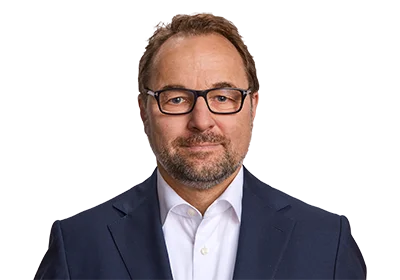Fusions & Mergers in the German Nonprofit Sector
Advice on Mergers & Acquisitions (M&A) for German NPOs
Where the competition for market shares and company growth is concerned, mergers & acquisitions are playing an important role in the corporate world. Typically, one company buys another, or part thereof, and integrates it into its own structures. In this way, a competitor is eliminated from the market and its innovations and employees are transferred to the acquirer.
The acquirer ideally also wins the customers of the company taken over. Transactions of this kind are common between companies headquartered in the same country, but often also take place across borders. In this way, the purchaser gains quick and secure access to a foreign market.

M&A transactions promote sustainable development in the third sector
However, company transactions and acquisitions are not only part of everyday business in a market economy, but they are also playing an increasingly important role in the German third sector (hence, for nonprofit organizations).
Even nonprofit organizations solicit customers, viewers, patients, members, subsidies, donors and sponsors. In view of an increasing competitive pressure, mainly due to limited financial resources and an ensuing need to save costs, nonprofit organizations, too, recognize the growth and cost savings opportunities associated with acquisitions and mergers ensuring a sustainable development.
In our consulting practice, we also frequently encounter NPOs that are so successful that they simply have to invest surplus liquidity in suitable targets since profit distributions are not permitted under nonprofit tax law (non-distribution constraint).
Such takeovers are not only taking place within Germany. Even the third sector experiences a growing number of cross-border M&A transactions. Above all, charitable German social enterprises, charitable kindergarten operators, and NPOs of the healthcare industry (hospitals, retirement homes etc.) are attractive acquisition targets not only for German purchasers but also for foreign (charitable and non-charitable) investors.
No "hostile" takeovers of nonprofit organizations possible
"Hostile" takeovers, which are often given special attention in the media, are nothing nonprofit organizations need to worry about. Due to the legal structure of most organizations of the nonprofit sector, it is mostly impossible to acquire the voting majority necessary for taking over the organization's business operations. Nonprofit enterprises should rather see fusions and mergers as an opportunity to expand their own field of activities allowing them to fulfill their charitable purposes in a sustainable manner.
Most common: Acquisition of German charitable LLCs (gGmbHs)
Sales and purchases of German charitable LLCs (gGmbH) show the highest degree of similarity to conventional M&A transactions. The acquisition of a gGmbH may be interesting for both charitable and non-charitable buyers. The process is similar to a takeover of a commercial GmbH as, both, asset deals and share deals are possible.
However, in the context of the required legal due diligence and tax due diligence, especially the particularities of the law governing charities and donations must be taken into account. Purchasing a gGmbH at imminent risk of losing its charitable and tax-exempt status will generally be no good deal for the purchaser but the worst case scenario to be avoided by all means. A careful due diligence performed by advisors having the appropriate specialist knowledge of the third sector in Germany can avoid such kind of nasty surprises.

Mergers of foundations
A special case of M&A transactions in the charitable sector are mergers of foundations. From a legal point of view, such mergers (in German also known as "Zusammenlegung") are permissible in particular if an individual foundation is no longer able to fulfill its purpose in accordance with the founder's intentions. At the end of the merger process, there will be a new foundation. The former foundations transfer their assets and will then be dissolved.
An acquisition (in German also called "Zulegung"), on the other hand, is a process in which a foundation transfers its assets to another already existing foundation and is then dissolved. These transactions are not uncommon but require a thorough examination of the original intentions of the founders and a clear definition of the future activities of the remaining foundation.
Mergers of associations and federations
Even associations can merge subject to certain conditions. There are multiple reasons for this such as:
- declining number of members;
- absence of public funding;
- high costs.
Therefore, the merger of associations is sometimes the last step in order to safeguard existing structures. In this context, both, the German Civil Code (Bürgerliches Gesetzbuch, BGB) and the German Transformation Act (Umwandlungsgesetz, UmwG) set the framework.
Basically, three scenarios are possible:
- a merger under the German association law (by admission of the other members or by a new formation);
- a merger under the German Transformation Act (by admission of the other members or by a new formation);
- a transfer of members without any property-law arrangements with respect to the associations.
A merger of two associations into one association will in any event require some effort and should not be performed without the assistance of an experienced legal advisor.
Cooperation of nonprofit organizations: Many things are easier together than alone
The third sector relies on cooperation. Nonprofit organizations can set up joint subsidiary gGmbHs or an umbrella organization. In this way, the individual players keep their independence and outsource part of their functions and tasks to a new entity. In this way, a joint representation of interests at the regional, federal, European, or global level or a joint economic activity become possible.
Irrespective of the number and size of cooperation partners, the framework conditions should be clearly defined in legal terms. After all, no one of the partners should take sole control of the joint enterprise, and surely the financially stronger organizations do not wish to permanently support the weaker ones.
Particularities of charitable fusions and mergers
M&A transactions in the nonprofit sector are special. This is due to
- the specific industries of the nonprofit sector,
- the special tax requirements under German nonprofit tax law, which may prevent the desired contractual agreements between the purchaser and the seller, and,
- the fact that often either the seller or the purchaser are public entities, which means that the transaction is likely to have a political relevance.
Your attorney for fusions and mergers in the German nonprofit sector
Our experienced attorneys and tax advisors will be very pleased to assist you in successfully overcoming these special obstacles. Please feel free to contact us with any questions regarding (cross-border) transactions in the nonprofit sector.
Feel free to send us an e-mail (info@winheller.com) or give us a call (+49 69 76 75 77 85 24) and we will be happy to assist.
Do you need support?
Do you have questions about our services or would you like to arrange a personal consultation? We look forward to hearing from you! Please fill in the following information.
Or give us a call: +49 69 76 75 77 85 24





